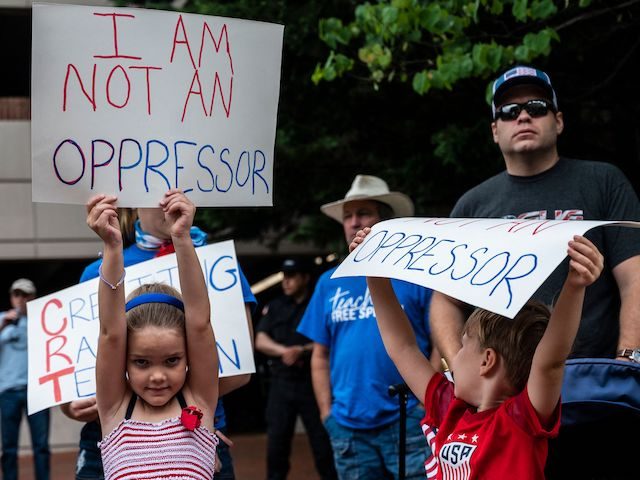A USA Today/Suffolk University survey released this month found nearly half of registered voters oppose the teaching of Critical Race Theory (CRT) in schools.
Of 1,000 registered voters, 47 percent (472) said they oppose the teaching of CRT, while 20 percent (201) support it and 33 percent (327) said they “don’t know enough about it to say,” as seen in question 17 of the survey.
Among 334 Democrats, 44 percent (148) support the teaching of CRT, while 13 percent (45) oppose it and 42 percent (141) say they do not know enough about it.
With 321 Republican respondents, only 3 percent (9) support CRT in schools, while 78 percent (250) oppose it and 19 percent (62) said they do not know.
Among 339 independents, 13 percent (43) support CRT, 51 percent (174) oppose it, and 36 percent (122) do not know enough about it.
Parents have every right to question and fight against the divisive practices of Critical Race Theory. Educational decisions that impact our children must be thoroughly investigated! https://t.co/4mISZ524ec
— Burgess Owens (@BurgessOwens) November 9, 2021
With race as a factor, the poll found 53 percent of whites oppose CRT in schools, while 21 percent of black respondents and 36 percent of Hispanics oppose it as well. Support for CRT among racial groups was 16 percent, 37 percent, and 22 percent, respectively. Among whites, 31 percent said they do not know enough about CRT to say, while 42 percent of black respondents and 41 percent of Hispanics said the same.
Among the 272 18-34-year-olds polled, 24 percent (66) support CRT in schools, while 40 percent (110) oppose it and 35 percent (96) said they do not know enough to say.
The Left's racialist narrative is collapsing:
–Latinos voted 40%+ for Youngkin in Virginia
–Asian-Americans voted 40%+ for Sliwa in New YorkThe Left will double-down with hysterics about "white supremacy," but voters see through it.
— Christopher F. Rufo ⚔️ (@realchrisrufo) November 11, 2021
In late October a Washington Post poll showed “education” was the top issue for Virginia voters in the governor’s race, ultimately won by now Governor-elect Glenn Youngkin (R), who supported parents battling woke school boards intent on promoting the teaching of CRT concepts in schools.
Our new Washington Post poll shows that EDUCATION is now the No. 1 issue for Virginia voters in the governor's race, edging out the economy.
In September, education voters favored McAuliffe by 33 points, but now they tilt toward Youngkin by nine points.https://t.co/9JgBtcyTkR
— James Hohmann (@jameshohmann) October 29, 2021
A Rasmussen Reports survey in June found 43 percent of 900 likely U.S. voters said CRT will make race relations “worse,” while 24 percent said it would make relations “better.” Additionally, 16 percent said they were “not sure.”

COMMENTS
Please let us know if you're having issues with commenting.